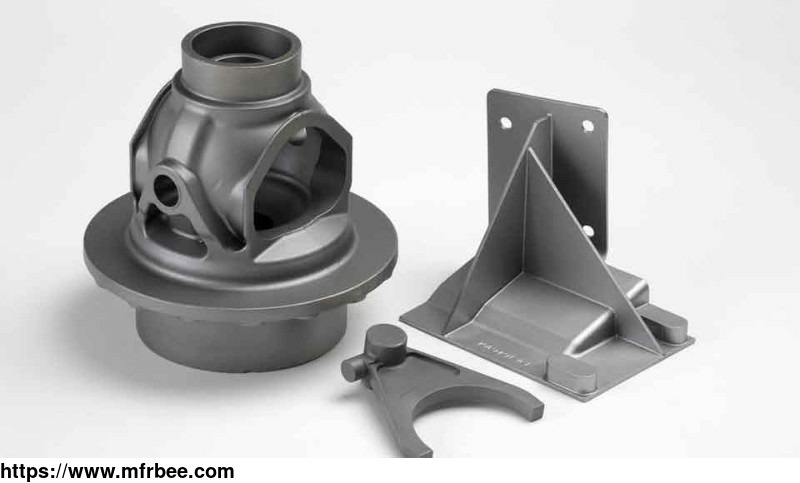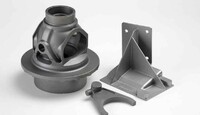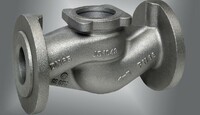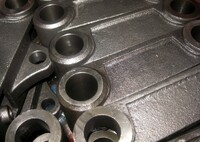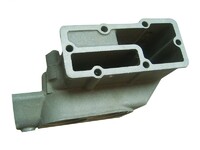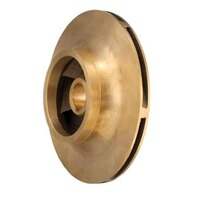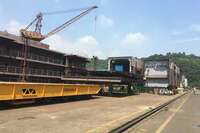Metal Casting
Product Quick Detail
- FOB Price
- USD $850.00 / Piece
- Minimum Order
- 3000
- Place Of Origin
- China
- Packaging
- N/A
- Delivery
- 50 days
Specifications
Casting process usually refers to the metal casting process, is one of heating processing technologies handled by humans can be found recorded as early as 6,000 years ago. This technology has been
attained the prime in China during 1,700 ~ 1,000 B.C, producing the bronze ware mainly at that time. A large number of exquisite bronze products were found today, represent the superb skills of
those technology that our ancestors masted, and in many cases, the bronze casting is seen as a symbol of the Chinese brilliant ancient civilization.
Despite it is an ancient technology, the casting process is still a very important method in a modern engineering field, when irregular or complex structure metal part is required. In contemporary
foundries, workers can produce much more complicated and heavier or delicate parts, even though the basic technology is the same as thousand years ago. First, make a mold, remove the pattern inside
and close the mold back, pour the melted metal, claim the finished product after the metal cooling to solid form. But now the industrial production mode applying to the casting process let a huge
amount of scale production output possible, and at a very low price. From children's bicycle to airplane undercarriage product, almost everywhere there are a number of parts can be found made by
the casting process.
In recent years, there's steady demand increase for the casting parts applying to the field such as automobile, electronics, telecommunication, home applicant, medical device. Meanwhile, the new
technology, advanced equipment and refined management have driven the casting process to achieve more accurate, more efficient, more environment friendly manufacturing standard. This old method to
form the metal has an even great future.
Different Types of Metal Casting
Sand Casting
Sodium Silicate Sand Casting
Green Sand Casting
Investment Casting
Lost Wax Investment Casting
Silica Sol Investment Casting
Stainless Steel Investment Casting
Vacuum Investment Casting
Die casting
Low Pressure Die Casting
Vacuum Die Casting
Squeeze Die Casting
Semi-Solid Die Casting
Investment VS Sand Casting
By pouring molten metal into molds to create the metal parts, the sand casting and the investment casting are among the most popular methods for the casting jobs. However, there are significant
differences between these 2 methods. An experienced engineer would select the right methods to cast the part according to all aspect, as show below.
• Casting part quality
Judge the quality by dimensional tolerance, surface finish, thinnest possible wall etc., no doubt, the investment casting can create better quality product than sand casting. The investment casting
uses ceramic molds which is quite hard and strong, so the finished parts have smooth surfaces and give low tolerances, also the wall thickness lower to 0.06” is achievable. The casting, on the
other hand, the mold is made of sand which is relatively rough, the finished part gives equally rough surface. And with sand casting, the mold has to be split apart to release the casting product,
so the parting lines exist on the surface of product. The thinnest possible wall with sand casting is about 0.1”.
• Weight limit of casting
The sand casting produced by sand casting suppliers has advantage with weight limit concerns, the size & weight of parts can range from few millimeter & grams to meters & tons. In most cases it is
the lifting equipment ability in the facilitie determines the maximum sand casting part weight limit. In Rayforce casting workshop, we are able to produce casting single piece part weight over 30
tons. For the investment casting, due to the limits from the hold-handling equipment, the investment casting part usually is up to 50 kg per piece.
• Cost and time
There’re 2 part of cost shall to think about when you’re trying to start making a new casting part: the charge of tooling and the product price per unit. First the foundry is going to make the
tooling that in this process it usually takes 1 month or so on, after some test showing the tooling is ok the foundry can start producing the casting part as scheduled time. The tooling cost
depends on several aspect: the size of product, the complexity of the casting part, type of material to make the tooling, the life that expected to use the tooling, etc. But generally the tooling
for investment casting is much expansive than the tooling for sand casting.
• Ease of casting complex design
The sand casting is not able to produce the part with complicated inner structure, and it must has draft angles or shred so that it come out of the compacted sand easily. The sand casting cores are
needed to form the interior, several cores might be needed in some cases. So these matters limit the designing engineer to create the part he wishes. For the investment casting, it used liquid
slurry to form the molds, as the result it can produce almost any shape, any structure part as engineer requires. So the freedom given to part designing is one of the key advantage with the
investment casting.
If you want to know more permanent mold casting types, please visit our website.
If you have needs to buy metal foundry, buy metal casting, please leave us a message.
- Country: China (Mainland)
- Address: No.1-101, building no.18, gate no.189, Nanneihuan street, Yinze district, Taiyuan city, Shanxi province, China
- Contact: rayforce com
